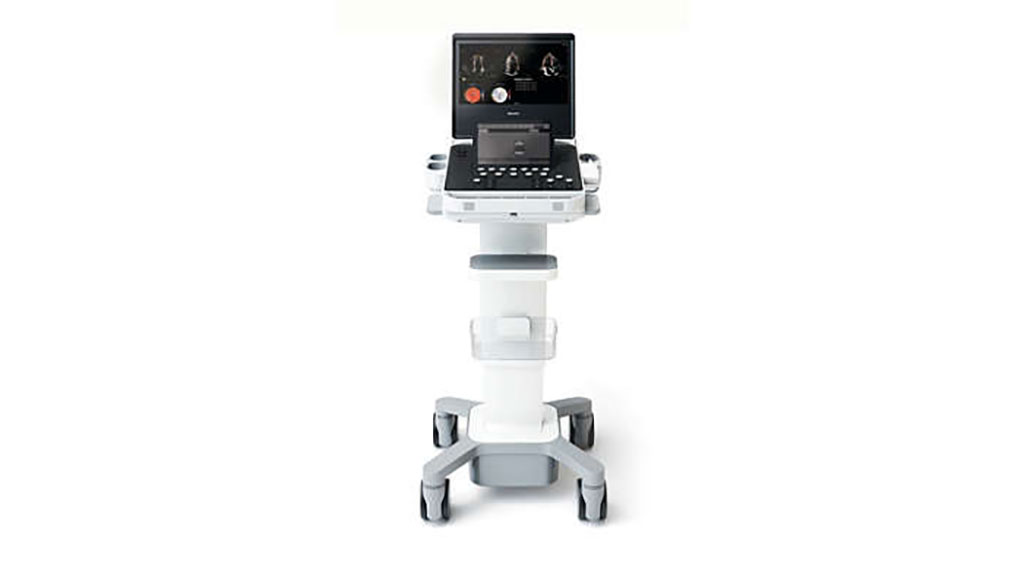AI-Integrated Cardiac Ultrasound to Improve Clinical Confidence and Efficiency
Posted on 25 Aug 2023
Ultrasound is among the most widely utilized imaging techniques, frequently serving as the primary diagnostic approach for cardiac patients. The demand for operators facing heavy workloads and increasingly complex cases remains a persistent challenge for healthcare systems globally. The integration of artificial intelligence (AI) into cardiac ultrasound and broader cardiac care has the potential to enhance clinical confidence and streamline efficiency.
Royal Philips (Amsterdam, the Netherlands) has introduced the 5500 CV portable ultrasound compact system, featuring an AI-driven automation tool (automated strain quantification) designed to evaluate the functioning of the heart's left ventricle—an essential marker of heart health. Philips has integrated AI-powered technology across its cardiac ultrasound offerings, encompassing comprehensive 3D quantification and modeling of the heart, automated 2D Doppler and length measurements, reproducible 2D strain quantification, and dynamic analysis of the mitral valve. The company has now integrated AI-powered automated analysis and reporting.

The Philips 5500CV ultrasound compact system offers full functionality and first-scan answers to users, regardless of their location. The reliable and robust system boasts a host of features, range of diagnostic solutions, enhanced cleanability, wireless connectivity, and reporting capabilities. It permits more bedside examinations, enhancing the quality of care and simplifying clinical decision-making. Furthermore, it provides the mobility required by clinicians to tend to a higher volume of patients throughout the day. Its compact size, combined with long battery life, facilitates high-quality scans in diverse environments, be it a spacious area or a confined space. While each of Philips' solutions contributes to addressing the daily challenges in cardiology, their collective synergy forms a powerful ecosystem empowering clinicians to achieve better cardiac care along with enhanced efficiency.
“The demands on cardiology departments have never been higher, driving clinicians to balance the delivery of high-quality care for a growing volume of complex patients with pressures to improve departmental efficiency,” said Bert van Meurs, Executive Vice President and Chief Business Leader of Image Guided Therapy and Precision Diagnosis at Philips. “From helping sonographers acquire the right image and analyze it in the right way, to cutting the assessment time for cardiac MR and CT images, we’re integrating AI across our portfolio to help clinicians make sense of all the information available to them so that they can focus more on caring for their patients.”
Related Links:
Royal Philips










 Guided Devices.jpg)



